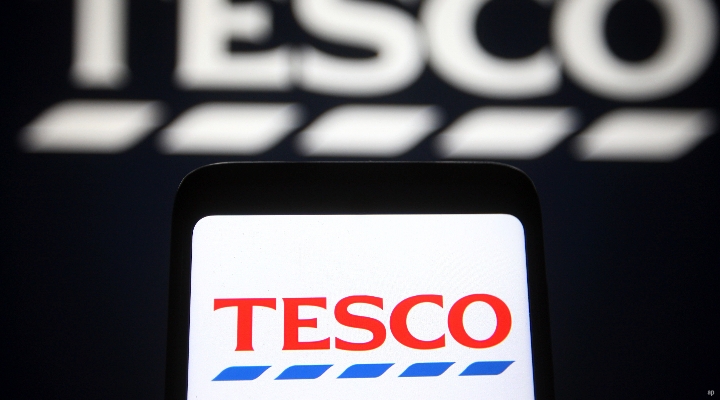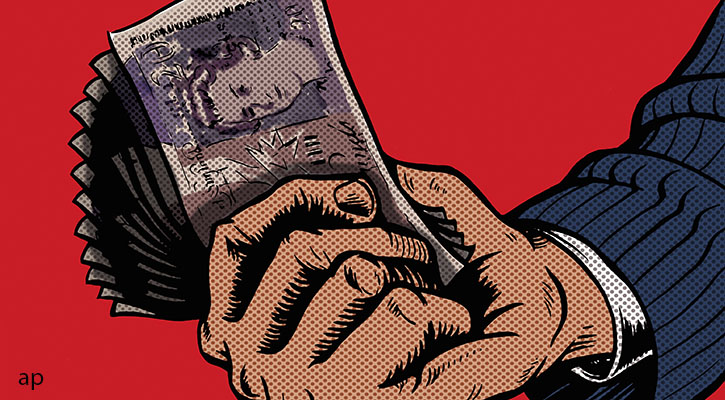
I’m not a huge fan of Tesco. I find the vibe in their stores quite clinical, and, having lived and worked in London for some years, I don’t think their Express shops lead the market for a pleasant experience. It’s the uncompromising white ceiling lights more than anything. I wanted a salad, not surgery.
You may well be wondering why I spend so much time thinking about Tesco’s aesthetics. Arguably I should get a life. Just hear me out for five minutes.
Quite apart from the travails of a lone journalist looking for ingredients late at night and wondering anxiously whether the two-pronged queue for the tills will lead him either to the awful self-service checkouts or an actual person, Tesco itself has had real ups and downs.
Profit With Purpose
The modern Tesco (TSCO) is partly the result of a British businessman, Sir Terry Leahy, whose tenure at the helm of the supermarket saw it buy up lots of convenience stores (2003), achieve profits of £2 billion for the first time (2005), expand into the US (2007), grab UK market share of 31.2% (also 2007), and launch a bank (2009). By that time, Tesco was popularly regarded as a retail behemoth.
Leahy announced his retirement in 2010, and in March 2011 Philip Clarke took his place.
But by 2012 Tesco was starting to struggle. Its US operation was a costly £1 billion failure, and deputy chief executive Tim Mason lost his job as a result.
Tesco’s first drop in annual profits in two decades came in 2013, and then the horsemeat scandal hit. Tesco wasn’t the only shop implicated in the controversy, but it certainly dented the store’s reputation. I remember the car brand Mini launched an advertising campaign for its new roadster with the strapline "beef, with lots of horses in it."
Hot on the hooves of that disaster came an accounting scandal regarding Tesco’s profits which forced the departure of Clarke in 2014. I remember it well. It was one of the first big business stories on the airways as I ventured into journalism, and I recall watching the company’s share price on a downwards tear as analysts wrestled with the idea Tesco’s gains were severely overstated. It was a huge business story.
The company’s share price hasn’t exactly been impressive since and certainly hasn’t topped 2007’s high, when its stock was trading around £6.
Today, shares will set you back £2.59. It’s easy for onlookers like me to gaze on wistfully, wondering how the company might boost its current market share of 27% and drive up its share price, but I do have one thought.
What's the Point of Business?
For me, this all boils down to the purpose of a corporation. In recent years, amid the astonishing rise of ESG investing, discussion has centred on two different schools of thought. One, popularised by Milton Friedman in the 1970s, that the sole purpose of a corporation is to maximise profits. The other, championed by BlackRock chief executive Larry Fink, that big business must serve a social purpose.
But rarer still is talk of problem solving and, frankly, fixing stuff. A corporation should solve problems for customers and communities. Moreover, with greenwashing such a problem, you shouldn't have to shout about your purpose as a business; if your mission as an organisation is solid and effective, it will do all the talking for you.
In its core product or service offering, a corporation should ideally solve some form of problem for the customer. What happens if I die and nobody can pay my mortgage? Step forward an insurance company with an appropriate policy.
The second way concerns how corporations apply that problem strategically. That is, the way they expand, evolve, or enhance that offering to target specific problems-within-problems, or larger groups of people with similar complaints. Its products or services may develop as it does this. They may equally die away, as its customers or clients evolve.
But thirdly and finally, corporations should also attempt to solve shorter-term problems too. It’s never easy for big business to be particularly nimble, but Tesco has been an unlikely hero in this regard.
Fighting Talk
Supermarkets can really help consumers feeling the pain of inflation right now, because their colossal bargaining power makes them not just scaled-up profit engines but terrific advocates for their own customers.
Tesco’s price war with Heinz may be over for now, but it has faced pressure from other food suppliers (notably Mars, owner of Whiskas cat food), which it has accused of serving up "unjustifiable price increases."
You might call it belligerent, but I’m glad that kind of fighting talk has re-entered the conversation. Naturally, it’s tied up with Tesco’s own price wars with its competitors, as Aldi and Lidl represent genuine threats at a point consumers are eyeing up the best deals for their bank balances.
Still, I hope Tesco doesn’t forget the moment it essentially told another business to do one, or the appreciation that should command among its customers. It might not heal its share price woes, or combat the highest inflation in decades, but it certainly puts a brand so often under pressure back on the front foot. Maybe I’ll give those Express stores another shot.
Ollie Smith is UK editor at Morningstar




























